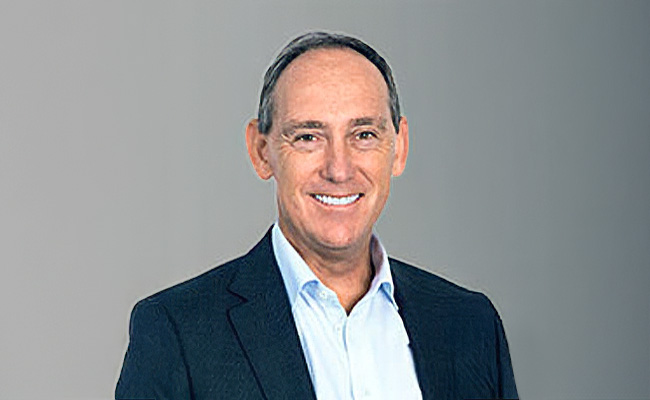Nedbank, Coronation Fund Managers and Absa came out top of a new ranking of 25 shareholder AGMs by nonprofit group Just Share, underscoring a wider improvement in governance.
But executive director Tracey Davies says that while shareholder democracy in South African JSE-listed companies is in a better place than it was a decade ago, only 53% of those AGMs were “legally compliant”.
“Companies are definitely putting more thought into how they engage with their shareholders – accommodating investors online, and making sure they can interact with the board and executives. But there are some companies that still treat shareholders as an afterthought,” she tells Currency.
Davies says it is a “rare AGM” where executives and the board provide “thoughtful, meaningful answers to shareholder questions”.
Finance firms did well, with Nedbank scoring highest at 81%, and Coronation being perhaps the most improved from recent years. Absa, Standard Bank and the JSE all scored above 70%, as did Spar and Gold Fields.
On the gloomier side, the lowest-ranked companies were largely industrial firms, reflecting the pressure on the sector. The struggling ArcelorMittal South Africa, which is shutting down its long-steel business, scored just 33%, including 13% for its legal compliance. The newly-listed debt-collection firm Nutun also got 33%, while Thungela Resources scored 42%.
It shows, says Davies, that while some companies have responded positively to the increased scrutiny from organisations like Just Share, others still don’t take AGMs seriously.
“The banks have more resources to invest in improving AGM governance, and they are far more reputationally aware. But activist investors attending ArcelorMittal’s AGMs in recent years have not experienced much commitment to shareholder accountability,” she says.
Company AGMs were ranked according to their legal compliance, and then effectiveness, which measured factors including whether there was equal treatment of all shareholders, and whether all questions were dealt with before voting. Just Share also looked at how long the individuals AGM took.
Overall, Just Share’s report suggests a step change from the early 2000s, when shareholder AGMs were often a perfunctory affair, an inconvenient filler between the sandwich trays and the avalanche of accolades for the CEO from the more sycophantic institutions that attended.
If your board was particularly unlucky during those years, an activist like Theo Botha would pitch up, and point out embarrassing holes in your financials. More often than not, however, you were safe.
Now, it has all become a lot more serious. Well, except for Nutun, which wrapped up its AGM in 13 minutes, and ArcelorMittal’s AGM, which lasted 16 minutes. Education company AdvTech gets the superficiality award, however, for an AGM that lasted all of 10 minutes.
As Just Share’s report puts it: “While there is no legally prescribed minimum duration for an AGM, it is difficult to believe that a board presiding over an AGM that lasts less than 20 minutes is committed to the AGM as a mode of accountability and inclusive shareholder engagement.”
Putting boards on the spot
Davies says that much of the improvement in AGMs over the past decade has to do with the presence of people like Botha and Just Share at these AGMs.
“There has been a big change. The growth of online AGMs and the increasing presence of activists asking challenging questions has highlighted these meetings as crucial sites of corporate accountability,” she says.
Typically, Davies says, executives and boards do not like being asked difficult questions in a public forum and, helpfully, most institutional investors shy away from doing so.
There are a number of AGMs where this has been painfully evident: the old JD Group, which merged into Steinhoff, was one such example, as was failed life insurance company Sage, where activists like Botha faced thinly-laced aggression from the board.
But Davies says this sort of public confrontation is good for all shareholders, and has a “positive impact on corporate governance”.
While some companies like Coronation have made an effort to improve shareholder engagement at their AGMs, Davies says others have responded to the greater scrutiny by trying to limit participation or by responding aggressively to questioning.
“Just Share has experienced many different reactions to AGM questions, the worst of which was the chair of a major financial institution who lost his temper and yelled at us for having the audacity to be asking questions at all. We had to remind him that we are shareholders with the right to be at the AGM,” she says.
More than that, these companies are public entities, in which pension savings are invested, with a legal duty to be transparent to shareholders.
Assessing the strength of South African corporate governance using AGMs as a proxy is a necessarily limited exercise – but, from Just Share’s reckoning, is shareholder democracy in a better place than a decade ago?
Davies says the evidence suggests it largely is, give or take the odd case like ArcelorMittal. More companies are trying to ensure their AGMs are accessible, while allowing shareholders to interact with the board and executives.
“There is a long way to go, especially when it comes to the quality of the answers that companies provide to questions at AGMs. But these are concrete improvements,” she says.
Top image: Rawpixel/Currency collage.
Sign up to Currency’s weekly newsletters to receive your own bulletin of weekday news and weekend treats. Register here.













